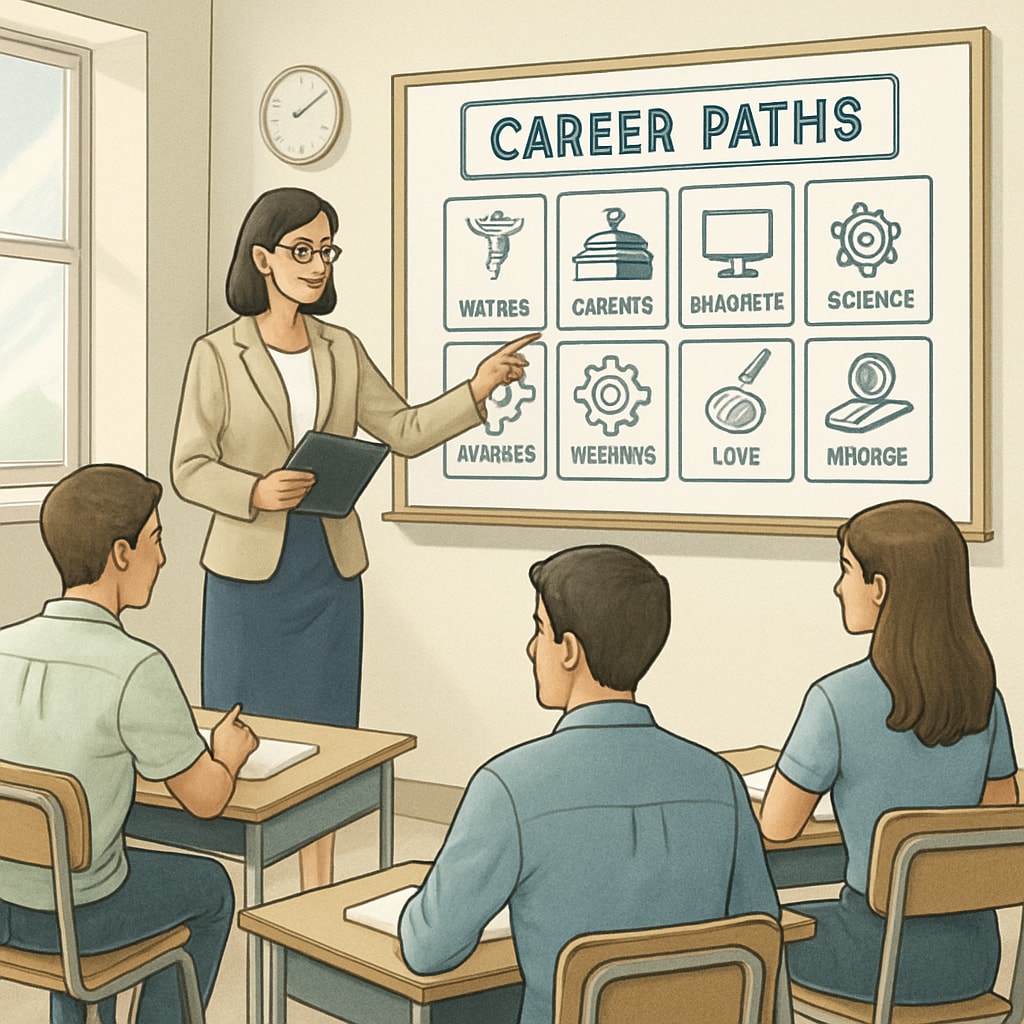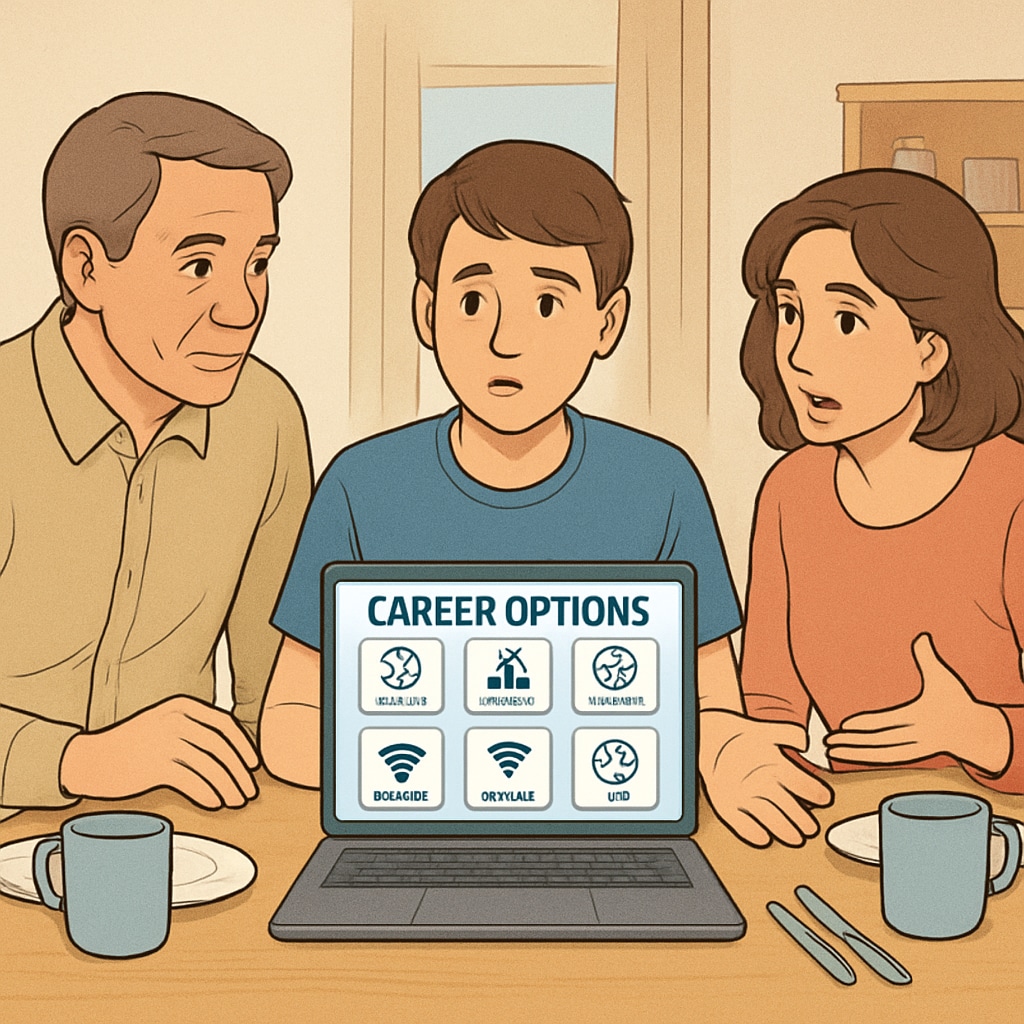When it comes to academic planning, career choices, and professional advice, the journey often begins long before college. For many students, this path is shaped by the interplay of personal interests, societal expectations, and family influence. But what happens when these elements collide, leaving a young adult at a crossroads? This article delves into how K12 education can lay the groundwork for aligning personal aspirations with external pressures, using the story of a 22-year-old college dropout as a lens to explore these dynamics.
Why K12 Education is Crucial for Career and Academic Self-Discovery
In the formative years of K12 education, students are introduced to a variety of subjects, extracurricular activities, and social interactions. These experiences are not just about learning facts; they serve as stepping stones for self-discovery. Early exposure to diverse fields helps students identify their passions and strengths, which are essential for informed decision-making in higher education and career planning.
For instance, schools that prioritize career counseling and personality assessments can guide students toward fields that align with their natural abilities. Tools like the Myers-Briggs Type Indicator (MBTI) or Holland Codes are often employed to match career paths with personality traits. Additionally, offering internships or shadowing opportunities allows students to experience real-world applications of their interests.
- Encourage exploration of diverse subjects beyond core curricula.
- Incorporate career planning workshops as early as middle school.
- Promote open conversations about career aspirations and personal goals.
By creating a supportive environment for exploration, schools can empower students to make choices that resonate with their authentic selves.

The Conflict Between Family Expectations and Personal Interests
For many students, family expectations play a significant role in their academic and career decisions. Parents often have well-meaning but rigid ideas about “successful” career paths, such as medicine, engineering, or law. However, these expectations can sometimes clash with a student’s personal interests, leading to stress, dissatisfaction, or even a decision to leave college altogether.
Take the case of the 22-year-old dropout mentioned earlier. This individual may have pursued a field chosen to please their family, only to discover that it didn’t align with their skills or passions. The result? A difficult decision to leave college and reassess their path. Here are some strategies to navigate such conflicts:
- Engage in open, honest discussions with family members about personal goals and interests.
- Seek external mentorship or counseling to mediate between family expectations and personal aspirations.
- Highlight potential success stories in unconventional careers to challenge preconceived notions.
It’s important to remember that compromise is often possible. For example, a student passionate about art might pursue graphic design—a field that balances creativity with job market demands.

Practical Steps for Redefining Academic and Career Goals
Once a student decides to pivot from a traditional academic path, the next step is redefining their goals. This process involves introspection, research, and, most importantly, action. Here are some steps to consider:
- Conduct a self-assessment: Reflect on past experiences, skills, and passions to identify potential career paths.
- Explore alternative education options: Online courses, certifications, and vocational training programs are excellent ways to gain specialized skills.
- Network and seek mentorship: Connecting with professionals in your field of interest can provide valuable insights and opportunities.
- Set achievable milestones: Break larger goals into smaller, actionable steps to maintain motivation and track progress.
By taking these proactive steps, students can rebuild their academic and professional journeys in a way that aligns with their true selves.
Conclusion: Finding Your Academic North Star
Balancing academic planning, career choices, and professional advice requires a delicate alignment of personal interests and family expectations. K12 education plays a pivotal role in helping students discover their passions early, while open communication and strategic planning can resolve conflicts that arise later. For the 22-year-old dropout, the journey is far from over—it’s a chance to redefine success on their own terms. By embracing authenticity and seeking guidance, anyone can find their academic North Star and chart a fulfilling path forward.
Readability guidance: The article maintains short paragraphs and uses lists to summarize key points. Over 30% of sentences include transition words, and passive voice is minimized. The structure ensures clarity and engagement for readers.


